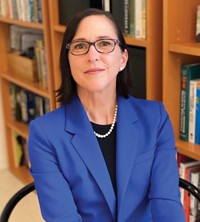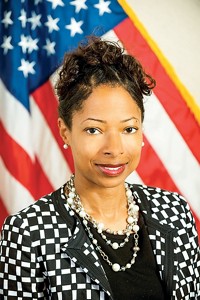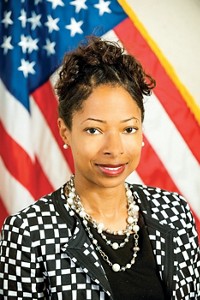Advertisement
Grab your lab coat. Let's get started
Welcome!
Welcome!
Create an account below to get 6 C&EN articles per month, receive newsletters and more - all free.
It seems this is your first time logging in online. Please enter the following information to continue.
As an ACS member you automatically get access to this site. All we need is few more details to create your reading experience.
Not you? Sign in with a different account.
Not you? Sign in with a different account.
ERROR 1
ERROR 1
ERROR 2
ERROR 2
ERROR 2
ERROR 2
ERROR 2
Password and Confirm password must match.
If you have an ACS member number, please enter it here so we can link this account to your membership. (optional)
ERROR 2
ACS values your privacy. By submitting your information, you are gaining access to C&EN and subscribing to our weekly newsletter. We use the information you provide to make your reading experience better, and we will never sell your data to third party members.
Safety
Safety Board May Halt Oil Rig Probe
BP Accident: The independent panel objects to limits on its role in the investigation
by Jeff Johnson
November 15, 2010
| A version of this story appeared in
Volume 88, Issue 46

The Chemical Safety & Hazard Investigation Board (CSB) is objecting to limitations imposed on it by federal agencies leading the investigation of the Deepwater Horizon oil rig explosion. Last week, the board threatened to sue to gain greater access to evidence and to overcome restrictions it will face during a closed-door forensic investigation of the oil rig’s failed blowout preventer, which is just getting under way in Louisiana.
The board’s investigation is one of a dozen examining the Deepwater Horizon oil rig explosion that occurred in April, killing 11 workers and creating the nation’s largest oil spill. Because of its expertise, the independent board was asked by members of Congress to investigate the accident’s cause.
The U.S. Coast Guard and Department of the Interior are overseeing the overall investigation through their Joint Investigation Team (JIT) and have selected Det Norske Veritas (DNV), a Norwegian firm, to design and conduct a forensic examination of the blowout preventer.
In letters to JIT and DNV, CSB laid out a host of concerns over its limited role in the investigation and said it wants to ensure that evidence collected by DNV is protected and readily available to CSB. The board is particularly concerned about restrictions in its role during the forensic examination set to begin Nov. 15, says Donald Holmstrom, CSB investigations supervisor.
JIT will allow only six witnesses to the forensic analysis: one each from Cameron, the manufacturer of the blowout preventer; BP, the well’s owner; Transocean, the driller; the Department of Justice; and CSB; as well as a representative for plaintiffs who are litigating over the accident. But CSB wants to rotate subject experts in and out of the examination, Holmstrom says, and this will not be allowed under an agreement CSB must sign to gain access to the examination, which involves a series of one-time destructive tests.
In a statement, JIT emphasizes that the technical team’s role is limited: They can only confer with the forensic examiner, DNV, over “decisions that must be made during the analysis that were not foreseen in the final test plan,” which was also developed by DNV, a past adviser to BP. JIT officials add that the six parties must reach “consensus” before any modification of the DNV test plan can occur during the examination.
Despite back-and-forth negotiations, no resolution had been reached as C&EN went to press. JIT has “bent over backwards” to reach an agreement, according to its spokesperson. CSB disagrees, and Holmstrom notes that the statute creating CSB states that other federal agencies cannot restrict the board’s investigation. CSB has threatened to go to federal court to block the investigation and has suggested the appointment of a special master to oversee the forensic examination and evidence collection.
“This is not a turf battle,” Holmstrom stresses, “but we are an independent agency, and we want the authority to conduct our investigation.”





Join the conversation
Contact the reporter
Submit a Letter to the Editor for publication
Engage with us on Twitter